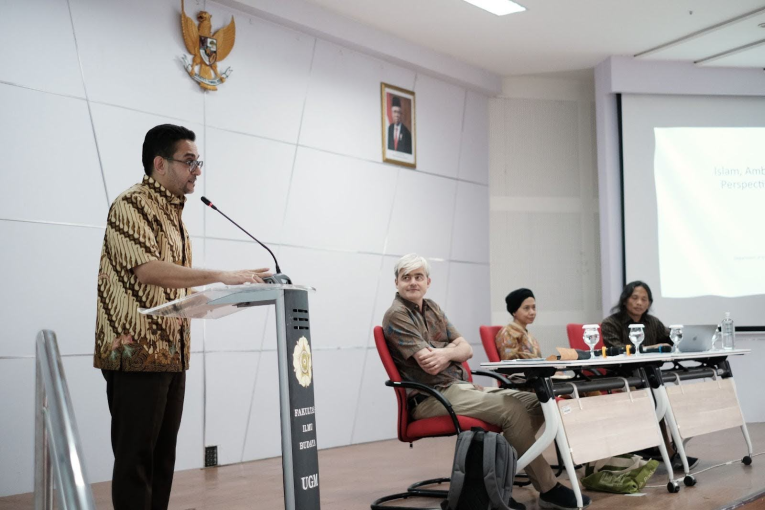
Opening the new academic year, on August 14, 2024 the UGM Anthropology Department, The Center for Religious and Cross-cultural Studies, and the Indonesian Consortium for Religious Studies held an Anthropology of Religion Seminar entitled “Islam, Ambiguity, and (In)Tolerance: Perspectives from Southeast Asia” which was held at the Auditorium of Soegondo building, Faculty of Arts UGM. On this occasion, Professor Ismail Fajrie Alatas and Dr. Martin Slama as speakers presented their work-in-progress.
The seminar was opened by Professor Ismail Fajrie Alatas by reviewing the thoughts of previous scholars such as Ernest Gellner who reemphasized the distinctiveness of anthropological studies of religion in understanding Islam as a system of social institutions and that orthodoxy contains power relations that manifest certain opinions. Meanwhile, his colleague, Dr. Martin Slama in this presentation highlighted more about the views of Southeast Asian communities regarding the concept of tolerance and intolerance in Islam towards the concept of ambiguity, drawing on the thoughts of Shahab Ahmed and Thomas Bauer, both arguing that Islam’s inability to respond to ambiguity is now an implication of modernity so that Islam becomes more intolerant and seems rigid like an ideology.
Enriching the discourse of religious studies and anthropology of religion in a more specific research locus is very important for the development of contemporary studies and insights for the wider community, as Dr. Sita Hidayah in her commentary mentioned that this research provides broader insights because it shifts the focus of Islamic studies towards Southeast Asia. Through various seminars, workshops, and discussions like this, the Anthropology Department is committed to realizing the Sustainable Development Goals including SDGs 4 quality education and SDGs 17 partnerships to achieve common goals.
Author: Novilatul Ananda Ramadhani
Photo: Puspita Nindya Sari
Editor: Admin of FIB Public Relations

